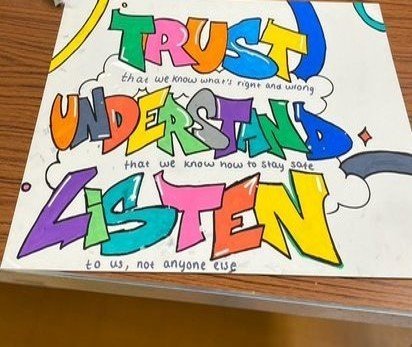An average of 79 children per day were moved between care placements during the festive period
The charity Become issued survey results on the number of children in care who had to move to a new placement just before Christmas. Read more about the survey here.
Social worker shortages making job ‘unsustainable’ for some, warns Ofsted.
Many councils increasingly reliant on agency staff whose working arrangements can reduce capacity and affect quality of relationships with children, inspectorate warns in annual report. Read the report here.
Challenging our thinking
Why can’t we focus? Do we really understand attention and distraction?
Adults worry that young people are unable to concentrate for long – are too easily distracted and should put their screens away. A new book ‘Attention Span’, by Research scientist Gloria Mark, documents how she began investigating how technology affects human attention when offices were first getting computers. Over the last 30 years, she
has tracked changes in our attention spans and stress levels, and in the fundamental way our brains process information.
Now she shows that much of what we think we know about attention could be wrong. She explores the current crisis of focus and productivity that is so deeply entwined with rising rates of anxiety and depression.
She debunks some common myths around attention and digital technology, and instead, in ways that immediately resonated with me - she looks at our own natural rhythms between deep focus and less attentive states. By recognising these, she suggests, we could potentially become both happier and more productive in the long term. This might be important for how we approach the concentration vs screens issue with children, especially vulnerable children. A fascinating read. (The Sunday Times ran a double page spread on Sunday Jan 1st.)
Waltham Forest Children in Care Council suggest ways of improving the language of care with a glossary of more positive terms to use.
Crime and law
Misogynist influencer arrested in Romania
– Andrew Tate and his brother are being investigated on possible charges, including people trafficking and sexual exploitation. Children in the UK are mentioning him increasingly to primary school teachers and online safety specialists who have been mentioning their concerns for months. See also his Hustler University. Read more on the arrest here
Confused by the current state of the Online Harms Bill?
The local government association sums up where we are, what questions remain to be addressed and what it all means practically. A helpful summary. One to keep an eye on as parliament returns. Read the summary here
BBC radio programme on County Lines
While this moving programme is less about digital life, many young people are in care when they are targeted and recruited. Four people recount their involvement with “county lines” - gangs that exploit children and vulnerable adults to sell drugs around the UK. Underneath their stories lies a series of unspoken, unanswered questions. Who gets to decide the boundary between criminal and victim? Listen here
Recent research:
Social media and wellbeing
Two studies from researchers we follow explore the eternal questions about social media and wellbeing. Recent media articles have suggested or stated that this question is settled or that there is a consensus – ‘social
media and digital life are bad for our wellbeing’.
But the case is not so simple. The picture is far more nuanced, and many individuals find social media or simply browsing, makes them feel happier and more connected or relaxed. Here are two recent research papers to get you thinking about emotional states and whether an experience can be both positive and negative! Two people using the same app may do so in different ways and have very different experiences depending on their states of mind... let us know what you think.
In Their Own Words: How Adolescents Differ in Their Social Media Use and How it Affects Them.
By Amber van der Waal, Patti M, Valkenburg and Irene I, van Driel Read the study here
Advancing Our Understanding of the Associations Between Social Media Use and Well-Being
by Patti M, Valkenburg, Adrian Meier and Marieks vanden Abeele provides some useful corrections to many unsupported statements about the impact of the online world on wellbeing. Here are clear messages about the complexity and differences of the responses people report. Download the research here
In Other News
- Newsletter
- Uncategorised
- Newsletter
- Newsletter
- Newsletter










